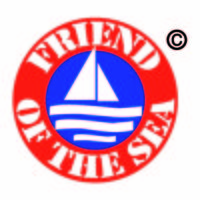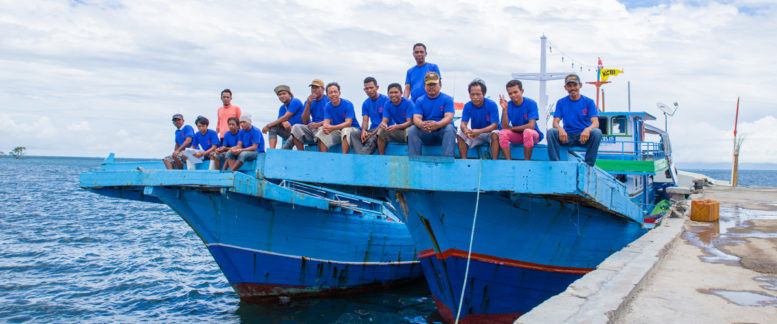PT Karyacipta Buanasentosa (PT KCBS), an Indonesian tuna catch and processing company, wholly owned by Yamako Pacific Pte Ltd, has recently obtained the Friend of the Sea certification for Skipjack and Yellowfin Tuna. The company complies with all Friend of the Sea requirements and can now display the official seal of approval on its products.
All tuna species are fished through Pole and Line method, without affecting or damaging the seabed, by Friend of the Sea approved vessels, in the Western Central part of the Pacific Ocean. This fishing method prevents any overfishing or the stocks being overexploited in those areas. In addition, all fleets are in compliance with the management measures and there is no bycatch of any endangered species.
The Friend of the Sea-certified suppliers also implemented an efficient waste management system to reduce pollution and optimizing all resources.
“Achieving the Friend of the Sea certification is an important step forward for PT KCBS and it reinforces our sustainability efforts,” says Masayuki Takaku, PT KCBS General Manager. “It sends a very clear message to our customers and suppliers regarding our continual commitment to sustainability. We are very proud to have achieved this recognition,” he added.
PT KCBS is an environmentally friendly and sustainable Pole and Line fishing operation and Proton Freeze processing company located in Maumere Flores, Indonesia. This company was incorporated more than 10 years ago and is specialized in tuna catching and processing.
Its Proton Freeze equipment produces Katsuoboshi (Smoked Skipjack Tuna) and Saku (Sashimi Grade Yellowfin Tuna) that meet the stringent Japanese import standards, and are well received in the Japanese market.
Sustainability. Indonesia is the biggest tuna-producing country in the world, contributing about 15% of global tuna production.
In the global fisheries market, tuna is an important commercial fish. Tuna is widely distributed throughout the oceans of the world. They are grouped taxonomically in the family of Scrombridae, with 50 species.
The main tuna species that are significant for commercial and recreational fisheries are blue-fin, yellow-fin, skipjack, albacore, and big-eye tuna.
Between the 1940’s and 1960’s, the annual world catch of the five principal market species of tuna rose from about 300,000 tons to about 1,000,000 tons, most of it taken by the sustainable fishing method of hook and line. But with the development of the Purse Seine net, which is now the predominant fishing gear, the catches have risen to more than 4,000,000 tons annually during the last few years. This has raised a global issue of sustainability.
Skipjacks are the smallest of the commercially important tuna species. Canned light tuna consists primarily of Skipjack. It can be sold as fresh or frozen. This small tuna species is resilient to fishing pressure because of their short life span, rapid growth, and high reproduction rates.
Friend of the Sea is an international certification program for products from sustainable fisheries and aquaculture. Over 500 companies in more than 50 countries have relied on Friend of the Sea to assess the sustainable origin of their seafood. Accredited independent certification bodies run audits, based on the best and the most updated available scientific data. Recently the program has expanded to the certification of sustainable shipping, ornamental fish and whale watching operator.
